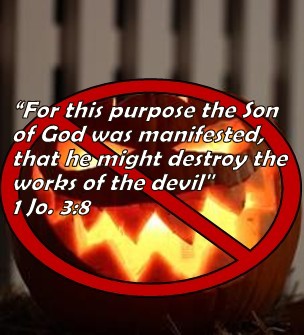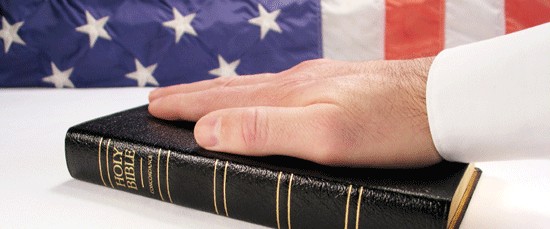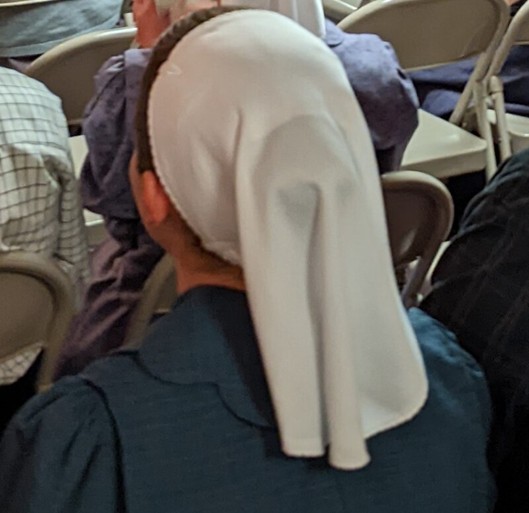
Although there were forms of representative government in ancient times, government of the
people by the people as we know it today is relatively recent. Democracy was not practiced in
Bible times, so we do not have Scriptures that address voting specifically. We do have many New
Testament passages, however, that address how Christians are to view worldly government and
civil officials.
Early Anabaptists avoided serving in government where force was used, and most conservative
Mennonites, Beachy, Amish, River Brethren, German Baptists, and similar groups still do. This
paper will offer the reasons we traditionally have not voted.
1. Two kingdoms
Jesus and the apostles clearly taught a distinction between the Kingdom of God and the
kingdoms of this world. Jesus told Pilate, “My kingdom is not of this world” (John 18:36). He
told His disciples, “You know that the rulers of the Gentiles lord it over them, and those who
are great exercise authority over them. Yet it shall not be so among you; but whoever desires
to become great among you, let him be your servant” (Matthew 20:25, 26). The next two points
expand on the differences between the two kingdoms.
2. Different missions
The two kingdoms have different missions. Jesus’ followers are to be salt and light in the world,
inviting unbelievers to follow Jesus (Matthew 5:13, 14; 28:18–20). The state is “God’s minister,
an avenger to execute wrath on him who practices evil” (Romans 13:4).
3. Different methods
The two kingdoms use different methods to accomplish their mission. Jesus taught His
followers, “Love your enemies, bless those who curse you, do good to those who hate you, and
pray for those who spitefully use you and persecute you” (Matthew 5:44). The state uses force,
and “he does not bear the sword in vain” (Romans 13:4). When Peter used a sword to defend
Jesus, Jesus rebuked him saying, “Put your sword in its place, for all who take the sword will
perish by the sword” (Matthew 26:52). Jesus told Pilate, “If My kingdom were of this world, My
servants would fight. . . but now, My kingdom is not from here” (John 18:36).
4. Authorizing force
Voting is participation in governing the kingdoms of this world. By our vote, we are authorizing
a politician to make laws and to enforce those laws on believers and unbelievers alike. A vote
may not seem like an act of force, but it is an authorization of force. In contrast, followers of
Jesus are in a spiritual battle against evil. Our “weapons” are not swords and guns. We put on
the “armor” of truth, righteousness, peace, faith, and God’s Word. See Paul’s description in
Ephesians 6:10–18 and 2 Corinthians 10:3–6.
5. Blurred lines
If we enter the governing process by voting, what valid objection can we offer against governing
at any other level? If we authorize another person to make and enforce a law, how can we not
also be the person to make and enforce the law? If by our vote we elect civil authorities to
positions in which they have the power to declare war, how does it make sense if we refuse to
participate in shooting and bombing the enemy? We seem to be saying, “I won’t put my life on
the line, but I want others to do so for me.”
6. Marred testimony
By voting, we confuse our witness to our neighbors. Our lifestyle testifies that we are not of this
world. This shows in the way we do business, in our appearance, and in our refusal to retaliate
against those who would harm us. Why would we want to step into the world’s political system
to vote for others to do what we say would be wrong for us to do? How does that make sense to
our neighbors?
7. God’s sovereignty
For followers of Jesus, voting is a departure from trust in God as the one who sets up rulers
for His purposes. Daniel testified to King Nebuchadnezzar that God “changes the times and
the seasons; He removes kings and raises up kings” (Daniel 2:21). But Nebuchadnezzar was a
proud man, and so God made him insane for a time, causing him to live outdoors like an animal
“till you know that the Most High rules in the kingdom of men, and gives it to whomever He
chooses” (Daniel 4:25). Conservative Anabaptists have been pressured to vote at times out
of fear—for example, in the early years of our country when the Quakers were about to lose
control of the government of Pennsylvania, or more recently when John F. Kennedy (a Catholic)
was running for President. In both cases, the Anabaptist voters were not able to prevent what
they feared. How much better it is to trust that God can raise up and put down rulers as He sees
best!
8.Our clear responsibility
New Testament writers give instructions for how we are to relate to worldly governments and
their leaders, but nowhere do they assume we are to participate in governing. We are to pray
for rulers (1 Timothy 2:1, 2). We are to obey them unless they ask us to do what is morally wrong
(Romans 13; Titus 3:1; 1 Peter 2:13–17; Acts 5:29). We are to pay taxes (Matthew 22:15–21; Romans
13:7). We are to respect them and not speak evil of them (Acts 23:5; Romans 13:1, 2).
9.Witness of the early church
Until the merging of church and state in the fourth century, early church leaders spoke against
participation in politics. Tertullian (160 – 220 A.D.), recognizing the incongruence of a follower of
Jesus attempting to enforce the laws of the state, wrote, “Shall he apply the chain, the prison,
the torture, and the punishment—he who is not the avenger even of his own wrongs?”1
Writing
to civil leaders, he explained how church leaders viewed participation in politics: “In us, all ardor
in the pursuit of glory and honor is dead. So we have no pressing inducement to take part in
your public meetings. Nor is there anything more entirely foreign to us than affairs of state.”2
10.Witness of the early Anabaptists
The early Anabaptists did not participate in politics. Article 6 of the Schleitheim Confession
(1527) includes these words: “It is not appropriate for a Christian to serve as a magistrate because
of these points: The government magistracy is according to the flesh, but the Christians’ is
according to the Spirit; their houses and dwelling remain in this world, but the Christians’ are in
heaven; their citizenship is in this world, but the Christians’ citizenship is in heaven; the weapons
of their conflict and war are carnal and against the flesh only, but the Christians’ weapons are
spiritual, against the fortification of the devil. The worldlings are armed with steel and iron, but
the Christians are armed with the armor of God, with truth, righteousness, peace, faith, salvation
and the Word of God.”3
As followers of Jesus, we are expected to live as salt, being a righteous preservative in a corrupt
culture. Let’s let our light shine, showing by our words and actions the good ways of Jesus. Let’s
pray earnestly that God will give us the civil leaders who will carry out His purposes. Let’s trust
that if God could call the Persian King Cyrus “My shepherd” (Isaiah 44:28), He is fully able to raise
up whom He wills today and work His purposes even through evil leaders. And let’s give ourselves
to the mission Jesus gave us, inviting the lost, forgiving those who harm us, and showing God’s
love to everyone, including our enemies.
Writing team
Steven Brubaker (PA), Merle Burkholder (ON), John Coblentz (PA), Matt Landis (PA),
Gary Miller (ID), Marvin Wengerd (OH), and David Yoder (KS)
1 Bercot, David. A Dictionary of Early Christian Beliefs. (Hendrickson Publishers: Peabody, Massachusetts, 1998) p.
545
2 Ibid. p. 545
3 https://christianhistoryinstitute.org/study/module/schleitheim







